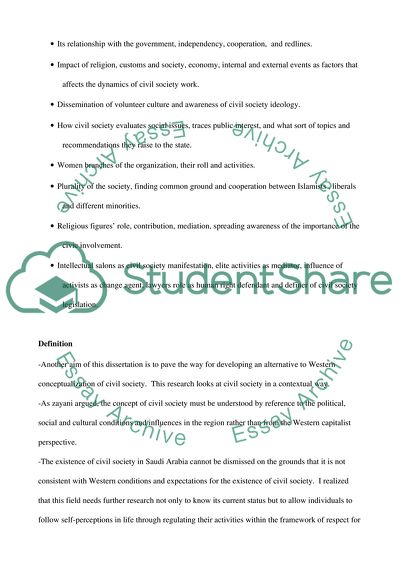Cite this document
(Civil Society and Religious Figures in Saudi Arabia Speech or Presentation Example | Topics and Well Written Essays - 2000 words, n.d.)
Civil Society and Religious Figures in Saudi Arabia Speech or Presentation Example | Topics and Well Written Essays - 2000 words. https://studentshare.org/social-science/1869317-civil-society-and-religious-figures-in-saudi-arabia-presentation
Civil Society and Religious Figures in Saudi Arabia Speech or Presentation Example | Topics and Well Written Essays - 2000 words. https://studentshare.org/social-science/1869317-civil-society-and-religious-figures-in-saudi-arabia-presentation
(Civil Society and Religious Figures in Saudi Arabia Speech or Presentation Example | Topics and Well Written Essays - 2000 Words)
Civil Society and Religious Figures in Saudi Arabia Speech or Presentation Example | Topics and Well Written Essays - 2000 Words. https://studentshare.org/social-science/1869317-civil-society-and-religious-figures-in-saudi-arabia-presentation.
Civil Society and Religious Figures in Saudi Arabia Speech or Presentation Example | Topics and Well Written Essays - 2000 Words. https://studentshare.org/social-science/1869317-civil-society-and-religious-figures-in-saudi-arabia-presentation.
“Civil Society and Religious Figures in Saudi Arabia Speech or Presentation Example | Topics and Well Written Essays - 2000 Words”. https://studentshare.org/social-science/1869317-civil-society-and-religious-figures-in-saudi-arabia-presentation.


